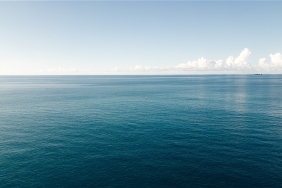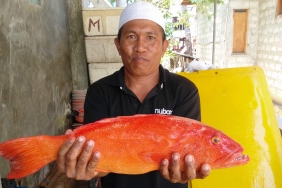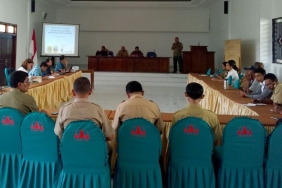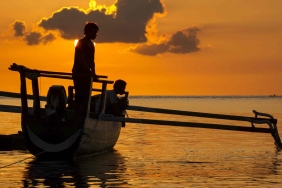SHELLBANK - A DNA DATABASE APPLICATION TO COMBAT ILLEGAL SEA TURTLE TRADE
Panama City, November 24, 2022 - Shellbank - the world's first search application platform and global database of sea turtle DNA, was launched at the 19th Convention on International Trade in Endangered Species of Wild Fauna and Flora (CITES) on November 23, 2022. At this convention, member states agreed to adopt a resolution in favor of sea turtle conservation.
The new CITES resolution urges governments to commit and ensure that tackling the illegal sea turtle trade is on their long-term agenda. It also calls for strengthened law enforcement through DNA tracing and better use of forensics - a need that ShellBank can answer.
"ShellBank is an innovation in the global effort to detect, disrupt and protect turtles from illegal trade. It provides information and access to a global DNA database to track turtles and their parts from sale to source. It is also powerful enough to provide to law enforcement to help implement the enforcement and protection measures governments have put in place under CITES, as well as to inform other action plans," said Christine Madden Hof, Global Turtle Conservation Lead, WWF International.
Details on how Shellbank can be used to track the global trade in illegal sea turtles are contained in a newly released report at the launch of CoP19 yesterday.
Six of the world's seven sea turtle species are threatened with extinction. Despite a global ban by CITES since 1977, unsustainable harvesting and illegal trade in turtles, turtle eggs, meat and turtle parts persists, and black markets are re-emerging. Over the past 30 years, at least 1.1 million turtles (excluding carapace products and eggs) have been illegally exploited in 65 countries, 22% of which may have been traded internationally.
Asia Pacific is the center of sea turtle utilization and trade. Between 2015 and 2019, more than 1,800 live and 1,200 dead turtles, 1,900 pieces of carapace and jewelry, plus thousands of kilograms of meat and tens of thousands of eggs were intercepted and seized by authorities in Indonesia, Malaysia and Vietnam.
To date, one of the biggest challenges in tackling the illegal trade and utilization of sea turtles has been the inability to identify targeted populations and those most at risk. ShellBank is disrupting this illicit trade by connecting the dots between poachers, traders and law enforcement using turtle DNA.
"With ShellBank, we can now trace, track and protect turtles. DNA from seized products will be matched - such as eggs or turtle carapace trinkets - to reference the database we are now building, we can also identify poaching hotspots and identify turtle populations most at risk," said Michael Jensen, species genetics coordinator, WWF International.
The reference database consists of genetic data collected from nests and foraging grounds, as well as captured or stranded turtles. When all female turtles return to their hatcheries to breed and lay eggs, genetic markers are passed from mother to offspring, making each nesting area unique. These unique markers can be analyzed using DNA and will be uploaded into the ShellBank global database allowing comparisons to be made of DNA extracted from seized items. This is an important step towards more effective enforcement and protection for sea turtles.
By linking the various turtle DNA databases, along with global partners and collaborators, together, it forms the basis for ShellBank. This tool is ready to be tested and put into practice now. So, we are asking conservationists, communities, governments and researchers to participate and help build ShellBank at ShellBankProject.org.
"As the global database for ShellBank grows and expands, it will transform global sea turtle conservation efforts to identify trends in illegal trade, and targeted efforts will contribute to dismantling the trade that threatens this iconic species," said Prof. Rob Ogden, Director of the TRACE Wildlife Forensics Network.
ShellBank is a multi-collaborative project contributed to by many organizations. The project is led by WWF in partnership with the Australian Museum Research Institute, NOAA Fisheries Southwest Fisheries Science Center, and TRACE Wildlife Forensics Network with many contributing partners.
"In Indonesia, all sea turtle species are fully protected marine biota through Government Regulation (PP) Number 7 of 1999 concerning the Preservation of Plant and Animal Species. Therefore, we support the eradication of illegal trade in all protected marine species. Last August, together with PSDKP KKP and Baharkam Polri, WWF has provided training to law enforcement as the frontline to guard and dismantle illegal trade networks in Indonesia. With Shellbank, we hope that it can facilitate all parties, especially to protect sea turtles," said Dr. Imam Musthofa Zainudin, Director of Marine and Fisheries Program of WWF Indonesia Foundation.
***
Media Contact
Marsden Momanyi
Email: mmomanyi@wwfint.org; WhatsApp +254 719784872
Lim Ji Ling
Email: jllim@wwf.sg; WhatsApp +65 92980961
More about ShellBank
ShellBank first publicized turtle shell DNA extraction in Cracking the Code (2019), and the results of a successful trial in Australia were published in Surrender Your Shell (2022). Since 2018, more than 650 samples from 18 sites have been collected and are either in progress or queued for analysis by local research groups across Asia-Pacific. Several ShellBank training sessions have been delivered to more than 65 researchers, and more than 60 law enforcement officers in various countries. Visit shellbankproject.org and read the report at bit.ly/shellbank22.
WWWF at CITES CoP19
CITES, which stands for Convention on International Trade in Endangered Species of Wild Fauna and Flora, is a global agreement between governments to regulate or prohibit international trade in endangered species. At the 19th Conference of the Parties (CoP19) to CITES taking place in November 2022, WWF is calling on delegates to take a series of bold steps to tackle illegal and unsustainable wildlife trade and help reverse the trends causing global biodiversity loss. Learn more about WWF's position on CITES CoP19 here.





